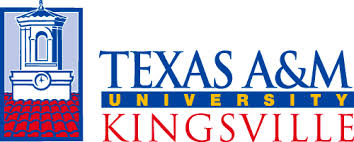Introduction
A degree in mechanical engineering offers students the opportunity to engage with a dynamic and versatile field that plays a vital role in addressing complex engineering challenges. With a strong emphasis on mathematics, science, and hands-on learning, this discipline prepares graduates for a wide range of career opportunities across various industries. The comprehensive education provided in both bachelor’s and master’s programs equips students with the skills and knowledge necessary to drive innovation and contribute to technological advancements.
Individuals who should consider pursuing a degree in mechanical engineering typically have a strong interest in mathematics and science, particularly physics. A passion for understanding how things work and the desire to solve practical problems are key motivators for many students in this field. Mechanical engineering is suitable for those who enjoy hands-on projects and working with tools, as well as those who excel in analytical thinking and creativity. The ability to collaborate effectively with others is also crucial, as mechanical engineers often work in teams to develop and implement engineering solutions.
Moreover, a mechanical engineering degree is ideal for individuals who aspire to be at the forefront of technological advancement. As industries evolve and embrace new technologies, mechanical engineers play a critical role in driving innovation. Students interested in renewable energy, robotics, or advanced manufacturing will find that mechanical engineering offers the foundational knowledge necessary to pursue careers in these dynamic fields. Ultimately, anyone with a curiosity about how things function and a commitment to improving the world through engineering would benefit from pursuing this degree.
Texas is home to several highly regarded mechanical engineering programs, offering students access to quality education and extensive resources. Notable institutions include Texas A&M University, the University of Texas at Austin, and Texas Tech University. These programs provide a comprehensive curriculum that covers essential topics in mechanical engineering while also emphasizing hands-on learning and practical experience. Many programs feature state-of-the-art laboratories, research facilities, and collaboration with industry partners, allowing students to engage in innovative projects and cutting-edge research.
Mechanical Engineering Degree Programs in Texas
Students enrolled in mechanical engineering programs in Texas often benefit from the state’s robust job market and strong industry presence. Texas is known for its diverse economy, with significant opportunities in sectors such as aerospace, automotive, energy, and manufacturing. Many universities in Texas also offer co-op programs and internships, providing students with valuable work experience and networking opportunities within the industry. The collaborative environment fostered by these institutions helps students build strong relationships with faculty, peers, and industry professionals, further enhancing their educational experience. An overview of these programs- both Bachelor’s and Master’s degrees located in Texas- can be found here:
Bachelor’s Degree Programs
Angelo State University
- San Angelo, TX
Credit Hours: 127
Resident Tuition: $7,508 (PYR)
Non-Resident Tuition: $14,888 (PYR)
Program Overview:
If you’re curious about how things work and enjoy building, designing vehicles, aircraft, or machines, a mechanical engineering major at Angelo State University might be for you. This degree prepares students to become practice-ready engineers upon graduation, offering hands-on experience through high-tech labs, internships, and field classes.
Baylor University
- Waco, TX
Credit Hours: 127
Tuition: $54,844 (PYR)
Program Overview:
The Department of Mechanical Engineering at Baylor University offers an ABET-accredited Bachelor of Science in Mechanical Engineering. The curriculum provides a strong foundation in thermal/fluids, materials/mechanical systems, and design, preparing students for careers in various industries, graduate schools, or non-profit organizations.
Lamar University
- Beaumont, TX
Credit Hours: 126
Resident Tuition: $6,471 (PYR)
Non-Resident Tuition: $14,031 (PYR)
Program Overview:
The Bachelor of Science in Mechanical Engineering at Lamar University prepares students for careers in areas such as machine and systems design, energy resources, manufacturing, transportation, and aerospace. The ABET-accredited program offers a comprehensive curriculum that covers research, design, development, and testing of mechanical devices. Students benefit from scholarships, internships, co-op opportunities, and networking through various student-to-corporate organizations, providing valuable industry connections and hands-on experience.
LeTourneau University
- Longview, TX
Credit Hours: 126
Tuition: $18,170 (PSR)
Program Overview:
Mechanical Engineering is a broad field focused on designing and creating physical systems that accomplish specific tasks. Applications of this discipline span numerous industries, including automobiles, aircraft, heating and cooling systems, oil and gas, medical equipment, and robotics. Graduates with a Bachelor of Science in Mechanical Engineering (BSME) have the versatility to pursue careers across these industries, designing and developing innovative solutions while shaping their own professional paths.
Midwestern State University
- Wichita Falls, TX
Credit Hours: 120
Resident Tuition: $9,414 (PYR)
Non-Resident Tuition: $13,393 (PYR)
Program Overview:
The Mechanical Engineering program emphasizes problem-solving, teamwork, and independent learning. It is a rigorous curriculum grounded in strong mathematical principles. In the first year, students build a foundation with pre-engineering courses, including two semesters of calculus, physics, and introductory engineering classes, all of which are essential for future success in the program.
Prairie View A&M University
- Prairie View, TX
Credit Hours: 126
Resident Tuition: $11,299 (PYR)
Non-Resident Tuition: $26,874 (PYR)
Program Overview:
The Department of Mechanical Engineering at Prairie View A&M University offers a Bachelor of Science in Mechanical Engineering (B.S.M.E.), one of only six ABET-accredited Mechanical Engineering programs at HBCUs. Graduate students can pursue a Master of Science in Engineering (M.S.E.) with a concentration in Mechanical Engineering, and exceptionally qualified students can enroll in a Five-Year B.S./M.S. program to earn credits for both degrees simultaneously.
Rice University
- Houston, TX
Credit Hours: 127
Tuition: $57,210 (PYR)
Program Overview:
Graduates of the BSME program will be able to identify, formulate, and solve complex engineering problems using engineering, science, and mathematics principles. They will also apply engineering design to create solutions that address public health, safety, and welfare, while considering global, cultural, social, environmental, and economic factors.
Southern Methodist University
- Dallas, TX
Credit Hours: 120
Tuition: $59,500 (PYR)
Program Overview:
The Mechanical Engineering Department offers a comprehensive education that equips engineers with the technical depth and breadth needed to lead organizations and develop innovative solutions across various industries. With a strong tradition of fostering creativity, the program features small classes, industry partnerships, and cutting-edge lab facilities to provide an exceptional learning environment for students.
St. Mary’s University
- San Antonio, TX
Credit Hours: 128
Tuition: $1,119 (PCH)
Program Overview:
Mechanical engineering is a versatile field focused on the principles of force, energy, and motion to advance technology and society. At St. Mary’s University, students in the Mechanical Engineering Program gain expertise in areas such as thermo-fluids, engineering design, solid mechanics, materials science, and manufacturing. The 128-credit-hour Bachelor of Science in Mechanical Engineering emphasizes a multidisciplinary approach, blending foundational engineering and science principles.
Tarleton State University
- Stephenville, TX
Credit Hours: 128
Tuition: $22,481 (PYR)
Program Overview:
The bachelor’s degree in mechanical engineering prepares students for careers in industry, licensure, and further studies in fields like mechanical engineering, mathematics, or physics. This hands-on, rigorous program provides real-world experiences, mentorship, and small class sizes for personalized learning. Graduates are qualified to pursue professional engineer licensure, essential for careers in consulting or private practice.
Texas A&M University – Kingsville
- Kingsville, TX
Credit Hours: 132
Tuition: $25,746 (PYR)
Program Overview:
Mechanical engineers at A&M Kingsville create a wide range of systems, from simple kitchen mixers to complex technologies like automobiles, heating and air-conditioning systems, nuclear power plants, and autonomous robotics. Their work is crucial in advancing technologies that utilize renewable energy sources such as solar, wind, and tidal energy, as well as cogeneration from waste for both domestic and industrial applications.
Texas A&M University
- College Station, TX
Credit Hours: 130
Tuition: $54,000 (PYR)
Program Overview:
Mechanical engineers at Texas A&M engage with manufacturing systems, robotics, and electromechanical devices. Graduates of this field are highly versatile, finding employment opportunities across industry, government, consulting, and research sectors. The undergraduate program in Mechanical Engineering at Texas A&M University is accredited by the Engineering Accreditation Commission of ABET.
Texas A&M University – Corpus Christi
- Corpus Christi, TX
Credit Hours: 128
Resident Tuition: $24,925 (PYR)
Non-Resident Tuition: $35,311 (PYR)
Program Overview:
The mechanical engineering curriculum equips students with the skills to professionally tackle both thermal and mechanical systems. Students will learn to identify, formulate, and solve complex engineering problems using principles of engineering, science, and mathematics. The program emphasizes engineering design to create solutions that consider public health, safety, and welfare, as well as broader global, cultural, social, environmental, and economic factors.
Texas Tech University
- Lubbock, TX
Credit Hours: 128
Resident Tuition: $11,852 (PYR)
Non-Resident Tuition: $24,092 (PYR)
Program Overview:
Students in the TTU Mechanical Engineering, B.S. program must adhere to a specific course sequence and may need to complete additional coursework if they lack high school credits in chemistry, physics, mathematics through analytical geometry, and at least two credits of a foreign language. A minimum grade of C is required in all courses contributing to the degree, and the department strictly enforces prerequisite requirements for all classes.
University of Texas – Arlington
- Arlington, TX
Credit Hours: 128
Resident Tuition: $11,728 (PYR)
Non-Resident Tuition: $29,660 (PYR)
Program Overview:
Mechanical engineering is a discipline that utilizes physics, mathematics, and problem-solving skills in the design, manufacture, and maintenance of machines, focusing on the principles of motion, energy, and force to ensure safe and efficient designs. At UTA, the mechanical engineering program prepares students for diverse roles in both private and public sectors, including product design, manufacturing, project management, and power generation, with a broad-based curriculum that emphasizes fundamental engineering sciences and applications.
University of Texas – San Antonio
- San Antonio, TX
Credit Hours: 128
Resident Tuition: $7,529 (PYR)
Non-Resident Tuition: $26,078 (PYR)
Program Overview:
UTSA’s Mechanical Engineering degree, accredited by ABET, offers a comprehensive curriculum that covers design and manufacturing, mechanics and materials, and thermal and fluid systems. Students will apply their knowledge to various industries, including aerospace, automotive, biomedical, energy (wind, solar, petrochemical), heating and cooling systems, machinery, microelectronics, robotics, and structures.
University of Texas – Rio Grande Valley
- Edinburg, TX
Credit Hours: 128
Resident Tuition: $9,538 (PYR)
Non-Resident Tuition: $19,333 (PYR)
Program Overview:
The Bachelor’s degree in Mechanical Engineering equips students with the skills to apply mechanics and energy principles in designing mechanisms, power systems, and controls. This versatile program covers various engineering components, including mechanical, energy conversion, environmental, transportation, and robotics, preparing graduates to collaborate with engineers across multiple disciplines.
University of Houston
- Houston, TX
Credit Hours: 128
Resident Tuition: $11,888 (PYR)
Non-Resident Tuition: $27,926 (PYR)
Program Overview:
The Bachelor of Science in Mechanical Engineering at the University of Houston equips students for diverse careers in this versatile field. With a curriculum focused on scientific reasoning, logical thinking, and self-learning, students benefit from committed faculty and abundant professional opportunities in the Houston area. Additionally, there are numerous research opportunities available for both undergraduate and graduate students.
University of Houston – Clear Lake
- Houston, TX
Credit Hours: 127
Resident Tuition: $9,101 (PYR)
Non-Resident Tuition: $26,081 (PYR)
Program Overview:
The Bachelor of Science in Mechanical Engineering at the University of Houston-Clear Lake emphasizes interdisciplinary problem-solving through a hands-on learning approach, featuring numerous laboratory and project-based courses. With small class sizes, students benefit from personalized attention from faculty, gaining proficiency in fundamental engineering principles and advanced computational techniques.
University of Texas – Austin
- Austin, TX
Credit Hours: 126
Resident Tuition: $11,698 (PYR)
Non-Resident Tuition: $41,070 (PYR)
Program Overview:
Students in this discipline gain a strong foundation in fundamental principles and topics essential for developing engineered systems in modern society, preparing them for rewarding careers and further studies in diverse fields such as business, law, and medicine. The mechanical engineering department emphasizes graduating professionals skilled in thermal/fluid systems, mechanical design, and materials manufacturing, who conduct themselves ethically and contribute to regional and national economic development through leadership and innovation.
University of Texas – El Paso
- El Paso, TX
Credit Hours: 128
Resident Tuition: $3,451 (PCL)
Non-Resident Tuition: $8,286 (PCL)
Program Overview:
The mechanical engineering undergraduate curriculum is designed to address the growing demand for robust, efficient, and cost-effective engineered systems, which often involve complex interactions among diverse subsystems. To equip graduates with the necessary design thinking skills and technical expertise, the program features a series of design courses, including cornerstone and capstone experiences.
University of Texas – Tyler
- Tyler, TX
Credit Hours: 128
Resident Tuition: $9,920 (PYR)
Non-Resident Tuition: $25,198 (PYR)
Program Overview:
As technology continues to advance rapidly, the prospects for mechanical engineering remain bright, offering numerous opportunities for growth and innovation. The Bachelor of Science in Mechanical Engineering provides a strong foundation for entering the industry and prepares students for graduate studies through a comprehensive curriculum and extensive hands-on experiences.
University of Texas – Permian Basin
- Odessa, TX
Credit Hours: 126
Resident Tuition: $6,577 (PYR)
Non-Resident Tuition: $18,817 (PYR)
Program Overview:
Mechanical Engineering students at UT Permian Basin develop a creative mindset essential for solving real-world problems by learning to design machines, systems, or processes. They analyze their designs using physics principles to ensure safety, efficiency, and reliability. This profession fosters creativity and ingenuity, leading to high job satisfaction and a strong sense of accomplishment.
West Texas A&M University
- Canyon, TX
Credit Hours: 120
Resident Tuition: $9,204 (PYR)
Non-Resident Tuition: $10,834 (PYR)
Program Overview:
Mechanical Engineering is a broad field focused on the design and fabrication of machinery and devices that convert energy into useful work, encompassing areas like energy generation, heat transfer, automation, healthcare, and national defense. As one of the oldest engineering professions, it remains highly sought after in today’s workforce, playing a crucial role in tackling challenges related to energy generation, environmental sustainability, and global economic competition.
Master’s Degree Programs
Texas State University
- San Marcos, TX
- Online + Campus
Credit Hours: 30
Modality: Online/On-Campus
GRE: Required
Resident Tuition: $9,000 (PYR)
Non-Resident Tuition: $14,970 (PYR)
University of Texas – Tyler
- Tyler, TX
- Campus
Credit Hours: 30
Modality: On-Campus
GRE: Required
Resident Tuition: $16,560 (TTL)
Non-Resident Tuition: $32,120 (TTL)
Tarleton State University
- Stephenville, TX
- Online
Credit Hours: 30
Modality: Online
GRE: Not required
Tuition: $9,936 (PYR)
Texas A&M University
- College Station, TX
- Online + Campus
Credit Hours: 30
Modality: Online/On-Campus
GRE: Not required
Tuition: $39,000 (TTL)
University of Texas – San Antonio
- San Antonio, TX
- Online + Campus
Credit Hours: 30
Modality: On-Campus/Online
GRE: Not required
Resident Tuition: $12,580
Non-Resident Tuition: $28,222
University of North Texas
- Denton, TX
- Campus
Credit Hours: 30
Modality: On-Campus
GRE: Required
Resident Tuition: $26,134 (TTL)
Non-Resident Tuition: $33,694 (TTL)
Texas Tech University
- Lubbock, TX
- Online + Campus
Credit Hours: 36
Modality: Online/On-Campus
GRE: Required
Resident Tuition: $348 (PCH)
Non-Resident Tuition: $756 (PCH)
University of Texas – Austin
- Austin, TX
- Online + Campus
Credit Hours: 30
Modality: Online/On-Campus
GRE: Not required
Resident Tuition: $16,412 (TTL)
Non-Resident Tuition: $20,845 (TTL)
University of Texas – Arlington
- Arlington, TX
- Online + Campus
Credit Hours: 36
Modality: Online/On-Campus
GRE: Not required
Resident Tuition: $6,256 (PYR)
Non-Resident Tuition: $16,056 (PYR)
University of Houston
- Houston, TX
- Online + Campus
Credit Hours: 30
Modality: Online/On-Campus
GRE: Required
Tuition: $745 (PCH)
Lamar University
- Beaumont, TX
- Online + Campus
Credit Hours: 30
Modality: Online/On-Campus
GRE: Not required
Resident Tuition: $359 (PCH)
Non-Resident Tuition: $779 (PCH)
ABET-accredited Mechanical Engineering Programs
ABET (Accreditation Board for Engineering and Technology) accreditation is a critical aspect of engineering degree programs, including mechanical engineering. Accreditation ensures that a program meets the high standards of quality and rigor established by the engineering profession. ABET-accredited programs are recognized for their commitment to delivering a comprehensive education that prepares graduates for the challenges of the engineering workforce. Employers often prefer candidates from accredited programs, as they have confidence in the skills and knowledge these graduates possess.
Accelerated Mechanical Engineering Programs in Texas
Participating in a 4+1 program offers several advantages, including reduced overall tuition costs and a quicker entry into the workforce with an advanced degree. Students enrolled in these programs benefit from an integrated curriculum that combines undergraduate and graduate-level courses, allowing them to deepen their expertise while still in school. 4+1 mechanical engineering degree programs, which enable students to earn both a bachelor’s and a master’s degree in a streamlined format, are becoming increasingly popular in Texas.
Texas A&M University and the University of Texas at Austin are examples of institutions that offer such pathways, allowing students to gain advanced knowledge and skills in mechanical engineering. Additionally, graduates of 4+1 programs are often more competitive in the job market, as they possess both foundational and advanced knowledge in mechanical engineering.
Affordable Mechanical Engineering Programs in Texas
At the University of Texas Rio Grande Valley, the resident tuition is $9,538 per year, while non-resident students pay $19,333. This relatively low tuition rate is especially beneficial for Texas residents, making it an attractive option for students who may otherwise struggle to afford higher education.
Similarly, the University of Houston-Clear Lake offers a resident tuition rate of $9,101 per year, while non-residents pay $26,081. The lower tuition rates for Texas residents significantly enhance access to education for students in the area, allowing them to focus on their studies and professional development rather than worrying about financial constraints.


























